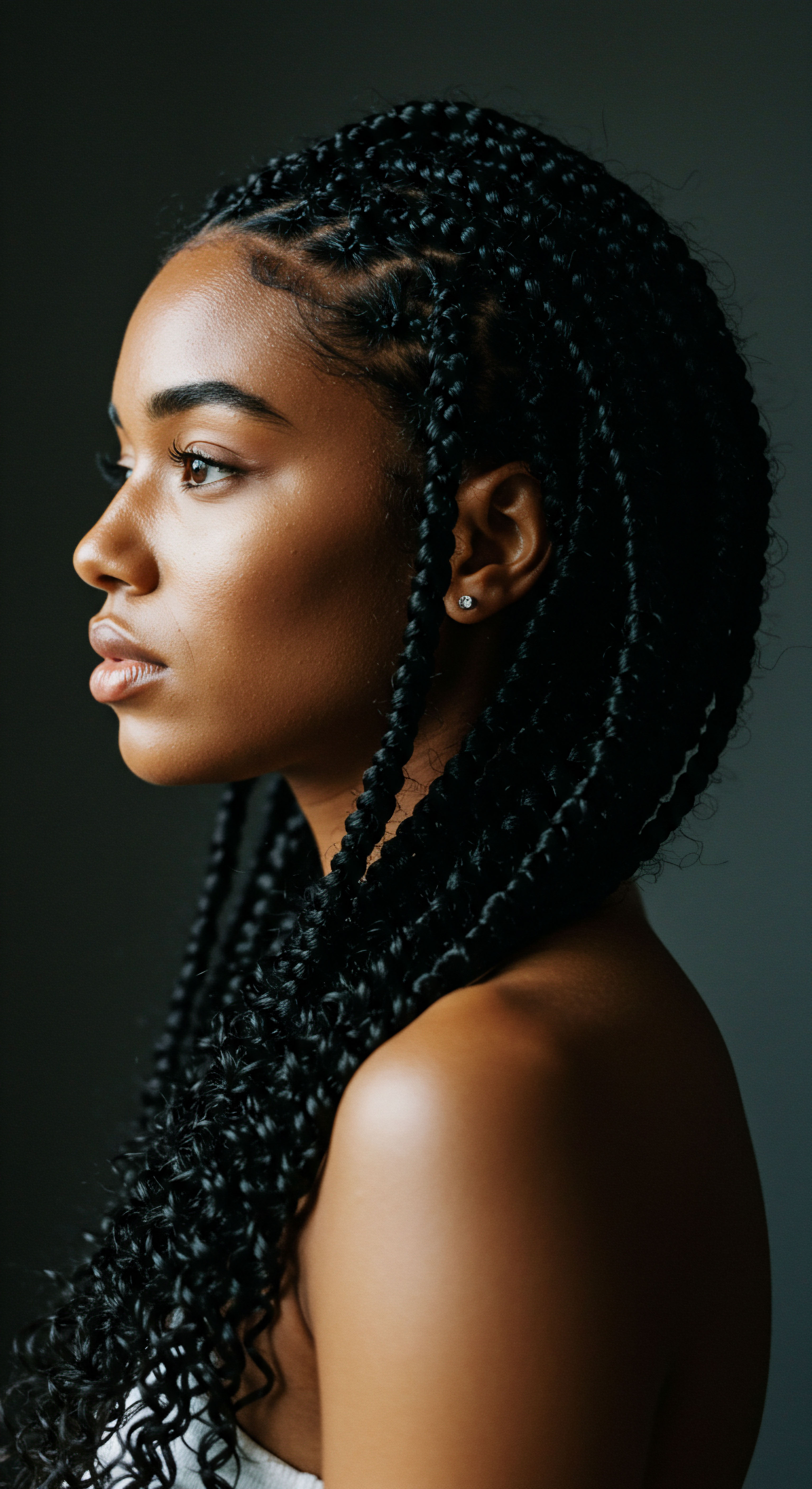
Roots
In the quiet hours, when the world settles into its slumber, a profound alchemy unfolds within our bodies. This restorative period, often taken for granted, orchestrates a delicate dance of cellular repair and regeneration. Our hair, a vibrant expression of our inner vitality, stands as a sensitive barometer of this nightly equilibrium.
The question of how sleep duration influences hair strength reaches beyond mere surface observation; it beckons us to consider the hidden biological rhythms that shape the very fiber of our being, and by extension, our strands. We stand at the threshold of understanding how deeply the quiet hours of rest resonate within each hair follicle, dictating its resilience and longevity.
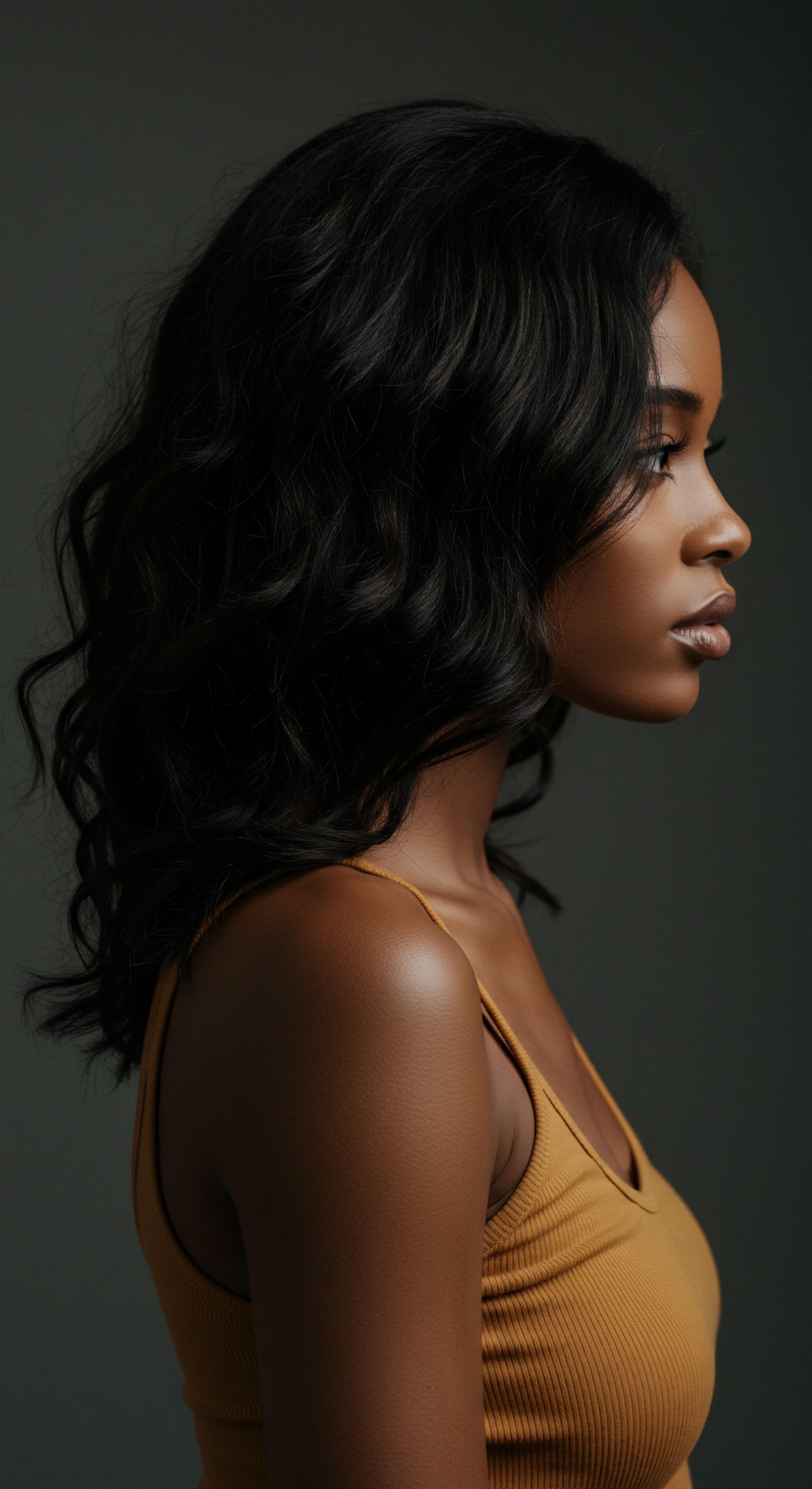
The Hair Follicle’s Nocturnal Rhythm
At the heart of every strand lies the hair follicle, a miniature organ with a complex, cyclical existence. This cycle consists of distinct phases ❉ the Anagen Phase, a period of active growth; the Catagen Phase, a brief transitional stage; and the Telogen Phase, a resting period before shedding. A fourth phase, Exogen, marks the actual shedding of old hair as new growth begins. Each hair on our head operates on its own timeline, yet these individual cycles are deeply synchronized with the body’s broader internal clock, known as the circadian rhythm.
The hair follicle, a miniature organ, orchestrates its life through distinct growth phases, all influenced by the body’s internal rhythms.
During deep sleep, the body prioritizes essential functions like growth and repair. This restorative activity directly influences the activity of hair follicles, particularly promoting optimal conditions for the anagen phase. Conversely, insufficient sleep can disrupt this natural progression, potentially pushing more follicles into the resting phase prematurely, which can lead to increased shedding and a noticeable thinning of hair.
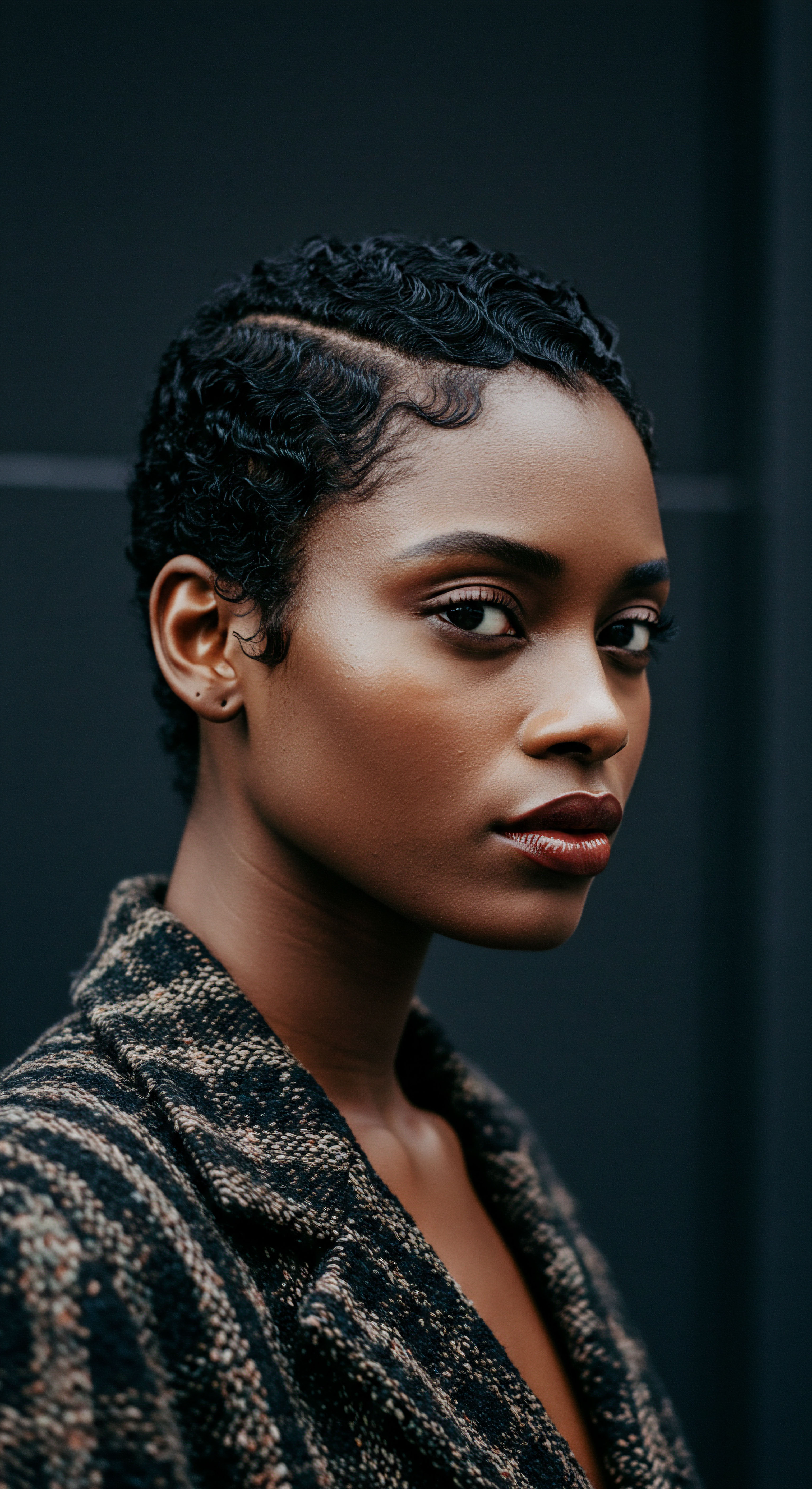
What Biological Processes Support Hair Strength During Sleep?
Sleep is not merely a period of inactivity; it is a time of intense biological activity, where vital processes contribute directly to the strength and health of our hair. One such process is Protein Synthesis. Hair is primarily composed of keratin, a protein.
During sleep, the body increases its production of proteins, including keratin, which is fundamental for hair structure. This increased synthesis supports the growth and resilience of hair strands.
Another significant aspect is Hormone Regulation. Sleep plays a critical role in balancing various hormones that influence hair vitality. Key among these are growth hormone and melatonin.
Growth hormone, released during deep non-REM sleep, triggers downstream insulin-like growth factors that boost hair keratin production and cellular regeneration within the hair follicles. Melatonin, often recognized for regulating sleep-wake cycles, also possesses antioxidant properties and helps synchronize hair cycle timing, with receptors identified in human hair follicles.
Beyond these, proper sleep enhances Blood Circulation to the scalp. Hair follicles require a steady supply of oxygen and nutrients, delivered through the bloodstream, for optimal growth and strength. During deep sleep, blood flow to the scalp increases, providing this crucial nourishment. Restricted blood flow due to poor sleep can hinder this process, potentially leading to weaker, slower-growing hair.
| Biological Process Protein Synthesis |
| Impact on Hair Strength Builds and repairs hair structure |
| Mechanism Increased keratin production for robust strands. |
| Biological Process Hormone Regulation |
| Impact on Hair Strength Orchestrates hair growth cycles |
| Mechanism Release of growth hormone, balanced melatonin levels. |
| Biological Process Blood Circulation |
| Impact on Hair Strength Nourishes follicles |
| Mechanism Enhanced delivery of oxygen and nutrients to the scalp. |
| Biological Process Cellular Repair |
| Impact on Hair Strength Maintains follicle integrity |
| Mechanism Regeneration of hair follicle cells and mitigation of damage. |
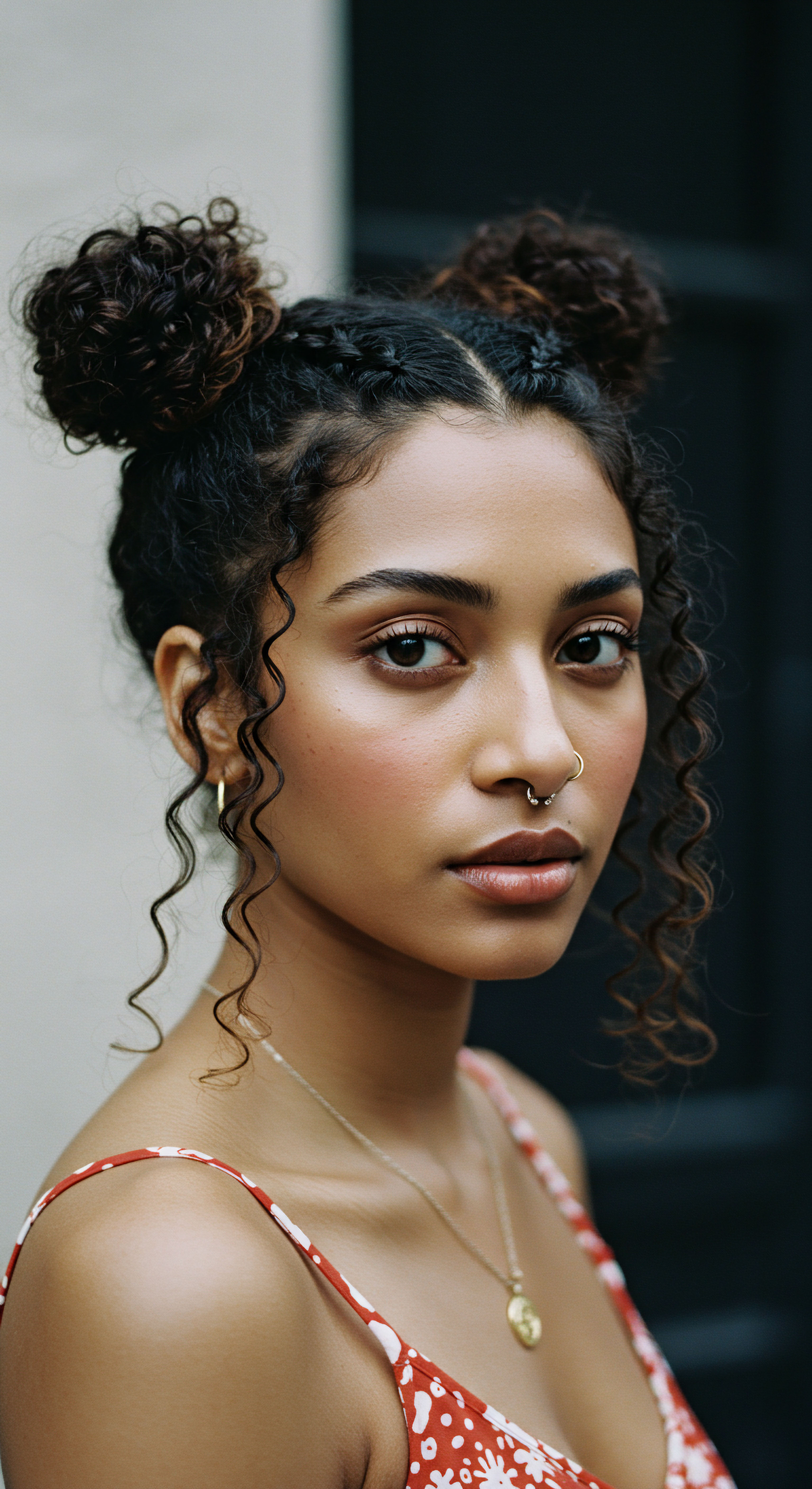
Ritual
As we move from the unseen rhythms of our biology to the tangible practices of our daily lives, we discover that the wisdom of intentional care extends into our slumber. The hours we spend in repose are not merely a pause from activity, but a potent opportunity to reinforce the resilience of our strands. Understanding how sleep duration influences hair strength naturally leads us to consider the nightly rituals we can adopt, transforming routine into a meaningful act of self-care. This section offers guidance on weaving thoughtful practices into your evening, ensuring your hair benefits from every quiet moment.
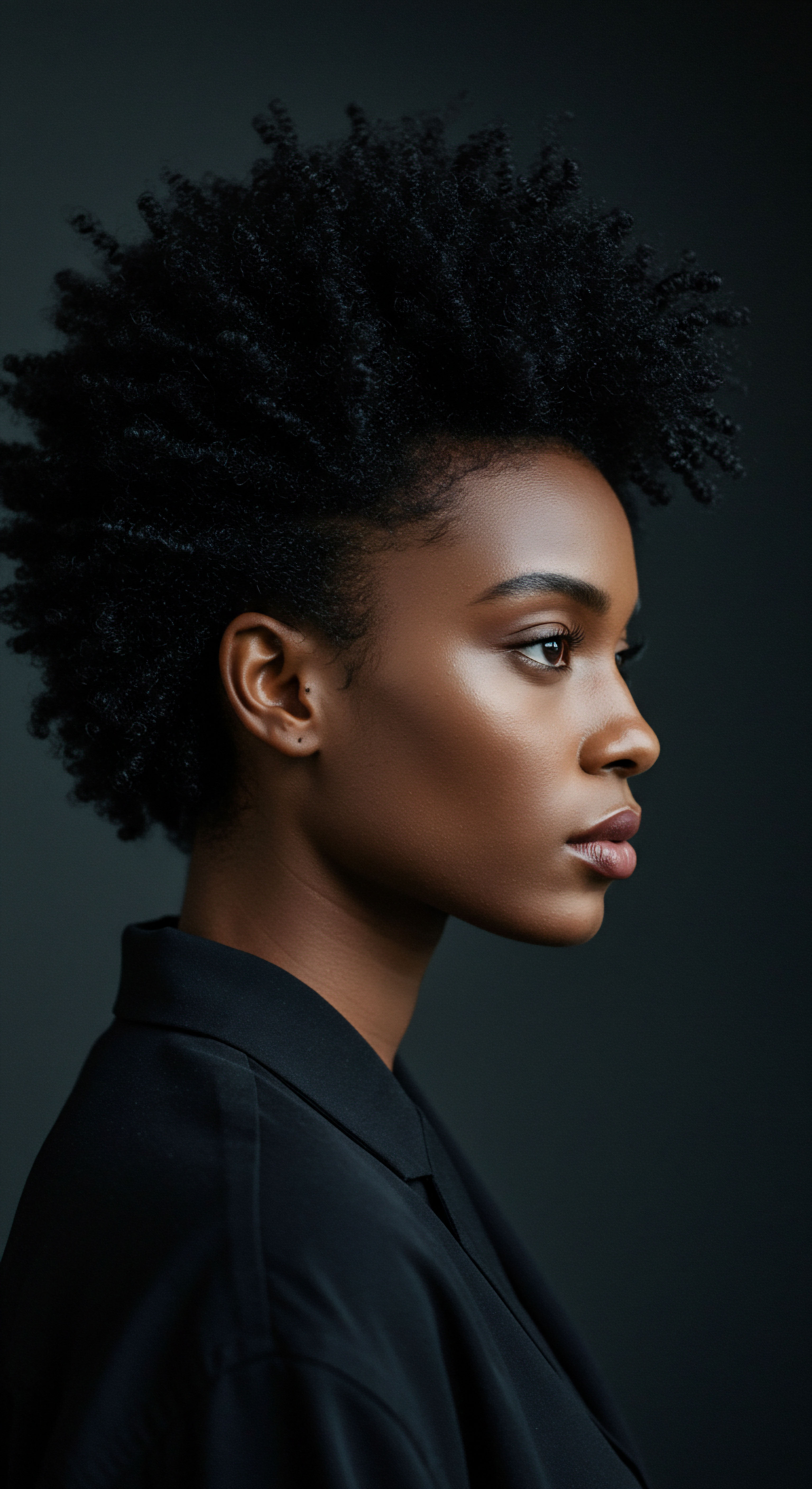
Nighttime Sanctuary for Strands
The environment and habits surrounding our sleep play a consequential role in hair preservation. The simple act of preparing hair for rest can prevent physical stress that leads to breakage and thinning. This includes selecting appropriate head coverings and choosing gentle pillow surfaces. For textured hair, which often possesses a more delicate cuticle layer and a tendency towards dryness, these considerations are especially pertinent.
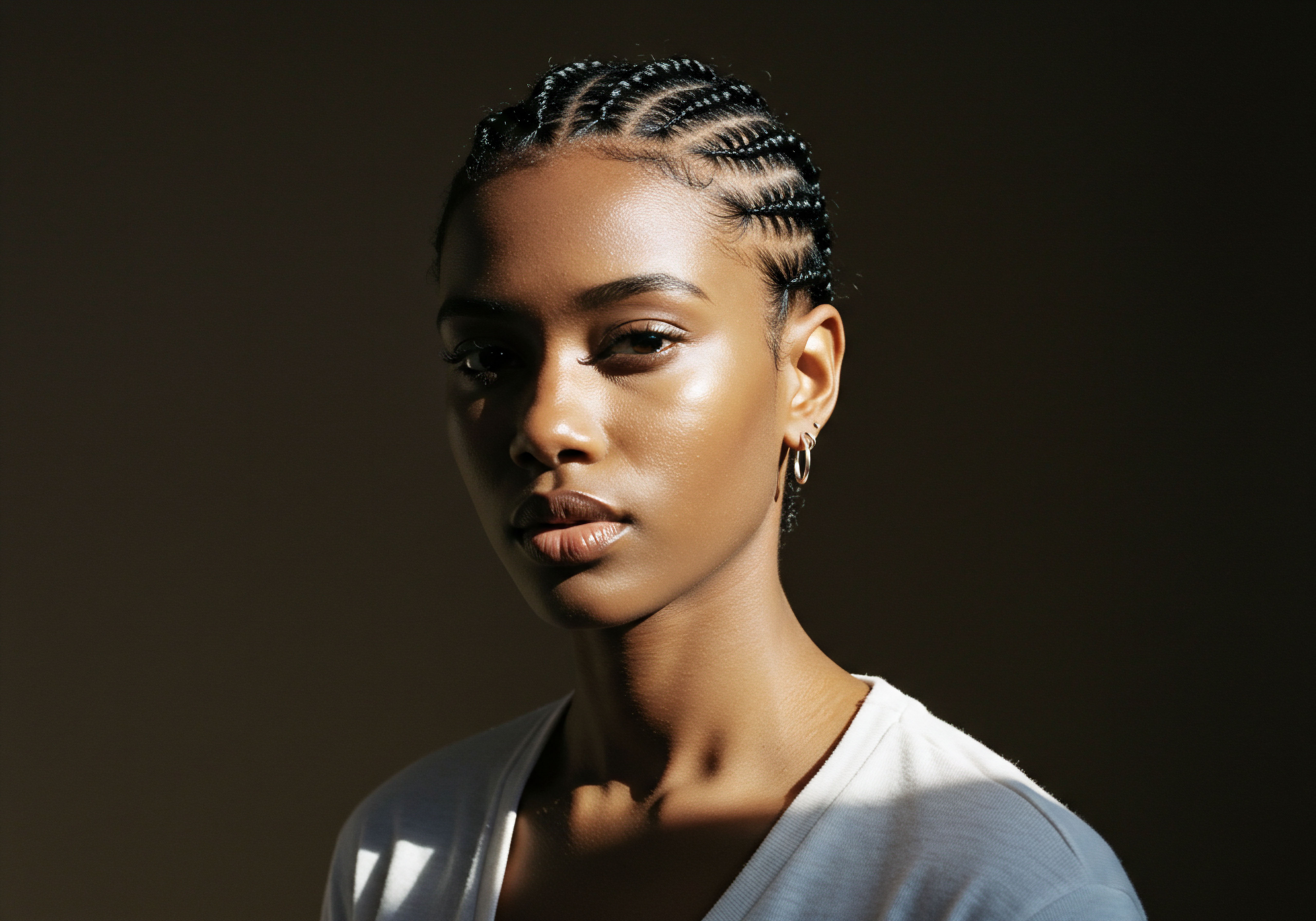
Why is Sleep Position Important for Hair Strength?
Consider the hours your hair spends against a pillow. Cotton pillowcases, with their absorbent nature and rough fibers, can draw moisture from hair and create friction. This friction can lead to tangling, breakage, and the disruption of the hair’s outer cuticle, diminishing its inherent strength over time.
Shifting to a Silk or Satin Pillowcase creates a smooth, low-friction surface, allowing hair to glide without snagging or absorbing its vital moisture. This seemingly small change can significantly reduce mechanical stress on strands.
Adopting silk or satin pillowcases minimizes friction, preserving hair’s moisture and structural integrity during sleep.
Beyond pillowcases, the choice of a Hair Covering offers an additional layer of protection. Bonnets, scarves, and wraps, traditionally used in many cultures for hair preservation, shield hair from environmental elements and friction. For those with coils, kinks, and waves, these coverings help maintain styling, reduce frizz, and keep moisture locked within the hair shaft, preventing the dehydration that compromises strength. When hair retains its natural moisture, it is more pliable and less prone to breakage, even under the subtle pressures of sleep.
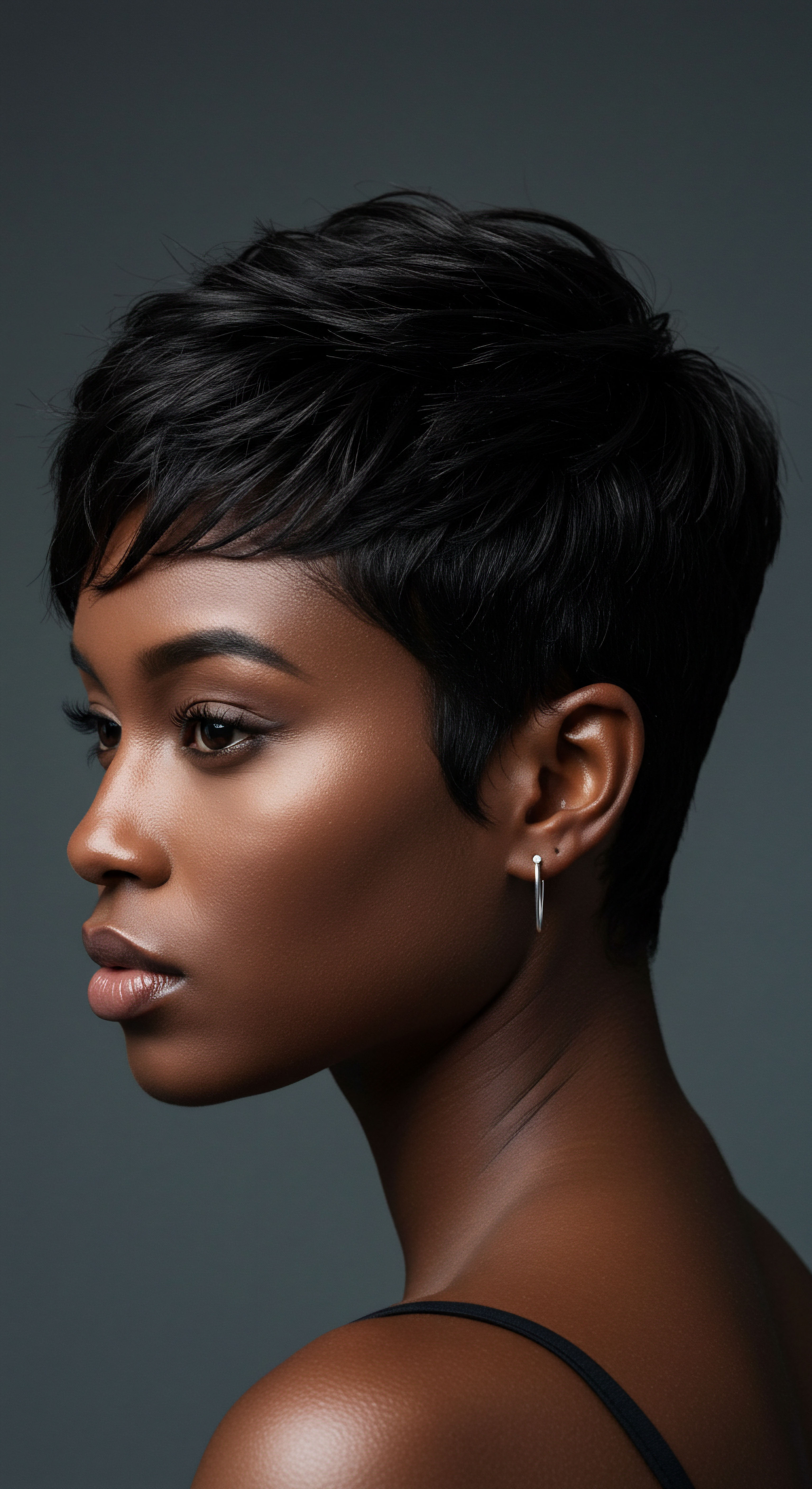
Cultivating Restorative Sleep for Hair Health
While external rituals offer protection, the internal state of rest remains paramount. The direct correlation between adequate sleep duration and the body’s capacity for repair means that a consistent, restorative sleep schedule directly benefits hair strength. Chronic sleep restriction, even if mild, can lead to a cumulative stress response within the body, manifesting in part as telogen effluvium, a form of temporary hair loss characterized by excessive shedding.
- Consistent Sleep Schedule ❉ Going to bed and waking at the same time each day helps regulate the body’s internal clock, supporting hormonal cycles that influence hair growth.
- Creating a Calm Environment ❉ A cool, quiet, and dark room signals the body to release melatonin, which not only aids sleep but also contributes to hair cycle synchronization.
- Mindful Evening Practices ❉ Engaging in calming activities before bed, such as gentle stretching or reading, can reduce cortisol levels, the stress hormone known to disrupt hair follicle activity and potentially shorten the hair’s growth phase.
The impact of insufficient sleep extends to nutrient delivery. During sleep, blood flow increases to the scalp, providing essential vitamins and minerals to the hair follicles. When sleep is cut short, this vital nourishment can be limited, weakening the hair from its very root. Prioritizing consistent, quality sleep is not merely about feeling rested; it is a profound commitment to the health and strength of your hair.
| Practice Silk/Satin Pillowcase |
| Benefit for Hair Strength Reduces friction and moisture loss. |
| Considerations for Textured Hair Prevents tangling, frizz, and maintains natural curl pattern. |
| Practice Protective Hair Covering |
| Benefit for Hair Strength Shields from environmental elements and friction. |
| Considerations for Textured Hair Preserves styles, retains moisture, and reduces breakage. |
| Practice Gentle Detangling |
| Benefit for Hair Strength Minimizes breakage before bed. |
| Considerations for Textured Hair Use wide-tooth combs or fingers; apply a leave-in conditioner. |
| Practice Moisture Application |
| Benefit for Hair Strength Replenishes hydration overnight. |
| Considerations for Textured Hair Seal ends with an oil or cream to prevent dryness. |
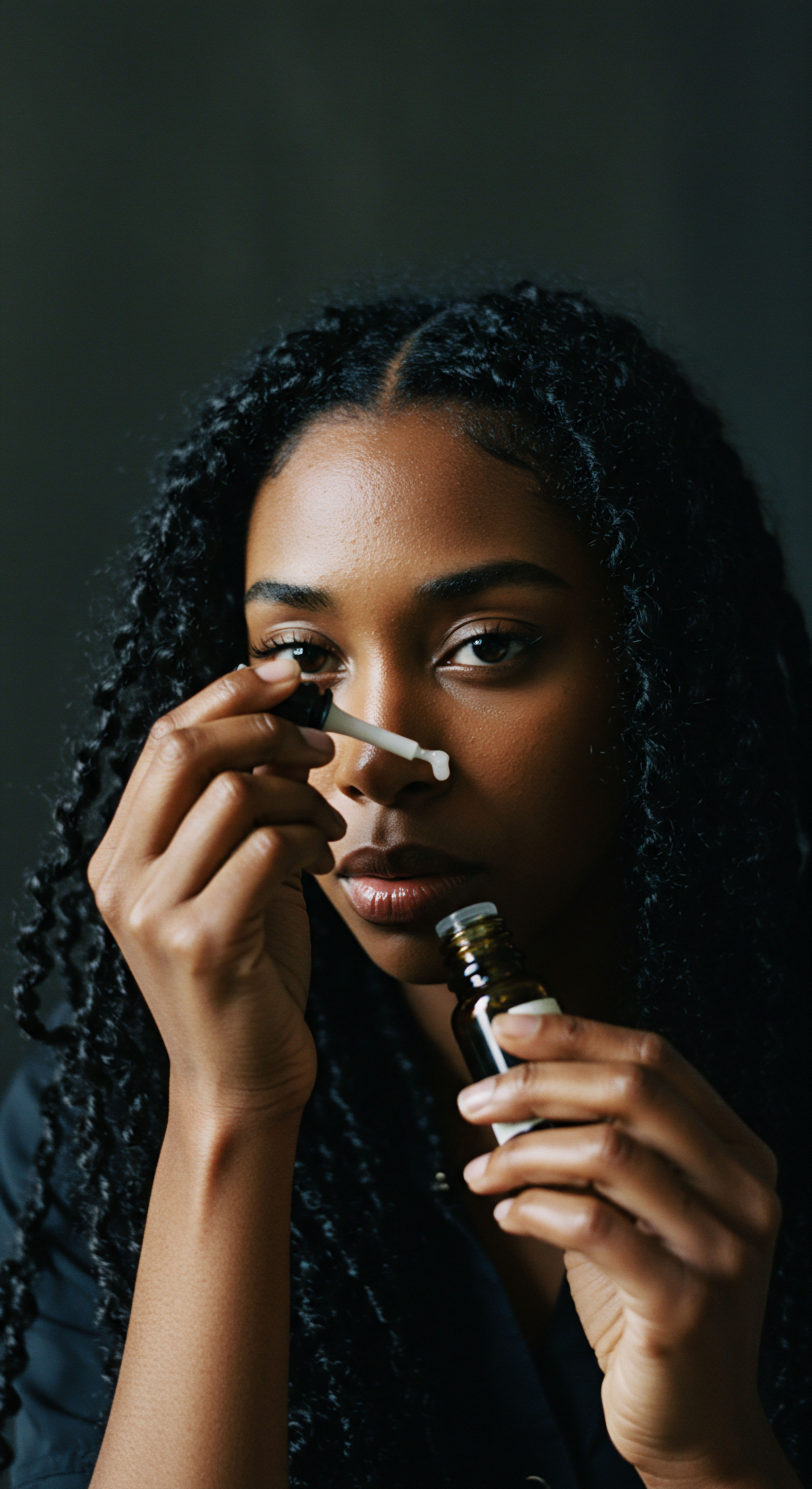
Relay
Beyond the observable rhythms of sleep and the tangible acts of nightly care, the question of how sleep duration influences hair strength beckons us into a deeper inquiry. It invites us to consider the intricate interplay of biological mechanisms, the subtle shifts in our internal chemistry, and even the echoes of ancestral practices that speak to hair’s connection to our overall well-being. This section ventures into the more complex, interconnected dimensions of this relationship, drawing upon scientific observations and the quiet wisdom of the body’s internal signals.
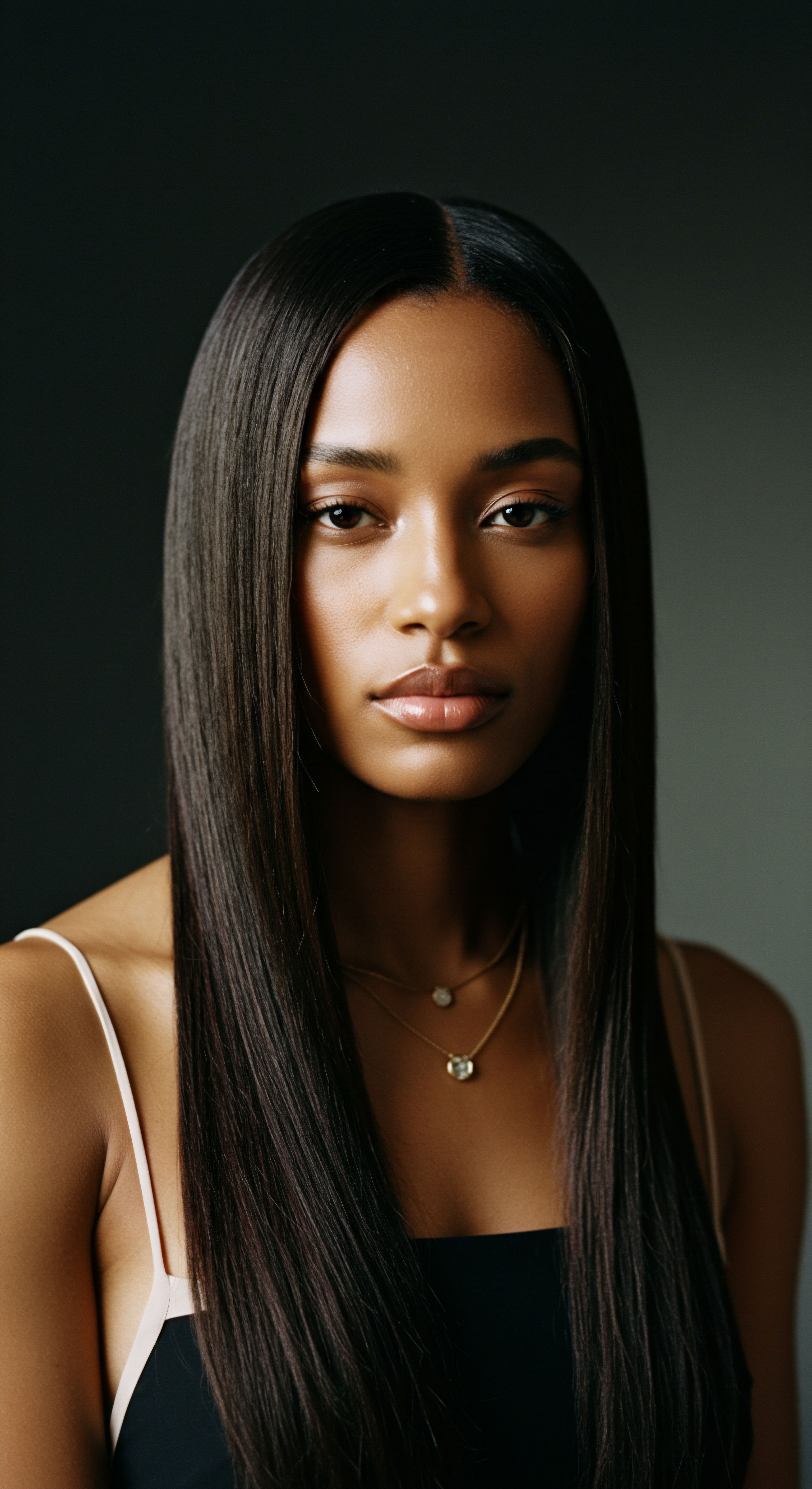
How Does Hormonal Regulation During Sleep Affect Hair Resilience?
The body’s endocrine system, a symphony of glands and hormones, performs much of its most vital work during the quiescent hours of sleep. Among these, the secretion of Growth Hormone (GH) stands as a particularly compelling example. Growth hormone is primarily released during the deeper stages of non-REM sleep, particularly stages III and IV.
This hormone is a significant driver of cellular repair and regeneration throughout the body, including the actively dividing cells within the hair follicles. When sleep is insufficient or fragmented, the natural pulsatile release of GH is suppressed, potentially hindering the regenerative capacity of hair follicles.
A study published in the journal Experimental Dermatology observed the impact of sleep deprivation on beard hair growth in young men. In this investigation, a 48-hour period of sleep deprivation resulted in a 19% Decrease in Beard Hair Growth. The researchers posited that this observable reduction reflected a lowering of protein synthesis during sleep deprivation, directly linked to hormonal disturbance, specifically the depression of growth hormone release.
This empirical observation, while focused on beard hair, provides a compelling, quantifiable illustration of how acutely hair growth—and by extension, its inherent strength, which relies on robust cellular activity—responds to the profound physiological shifts induced by a lack of restorative sleep. It serves as a stark reminder that hair, though seemingly external, is deeply integrated into our systemic health.
Sleep deprivation can suppress growth hormone release, a critical factor for hair follicle regeneration and protein synthesis.
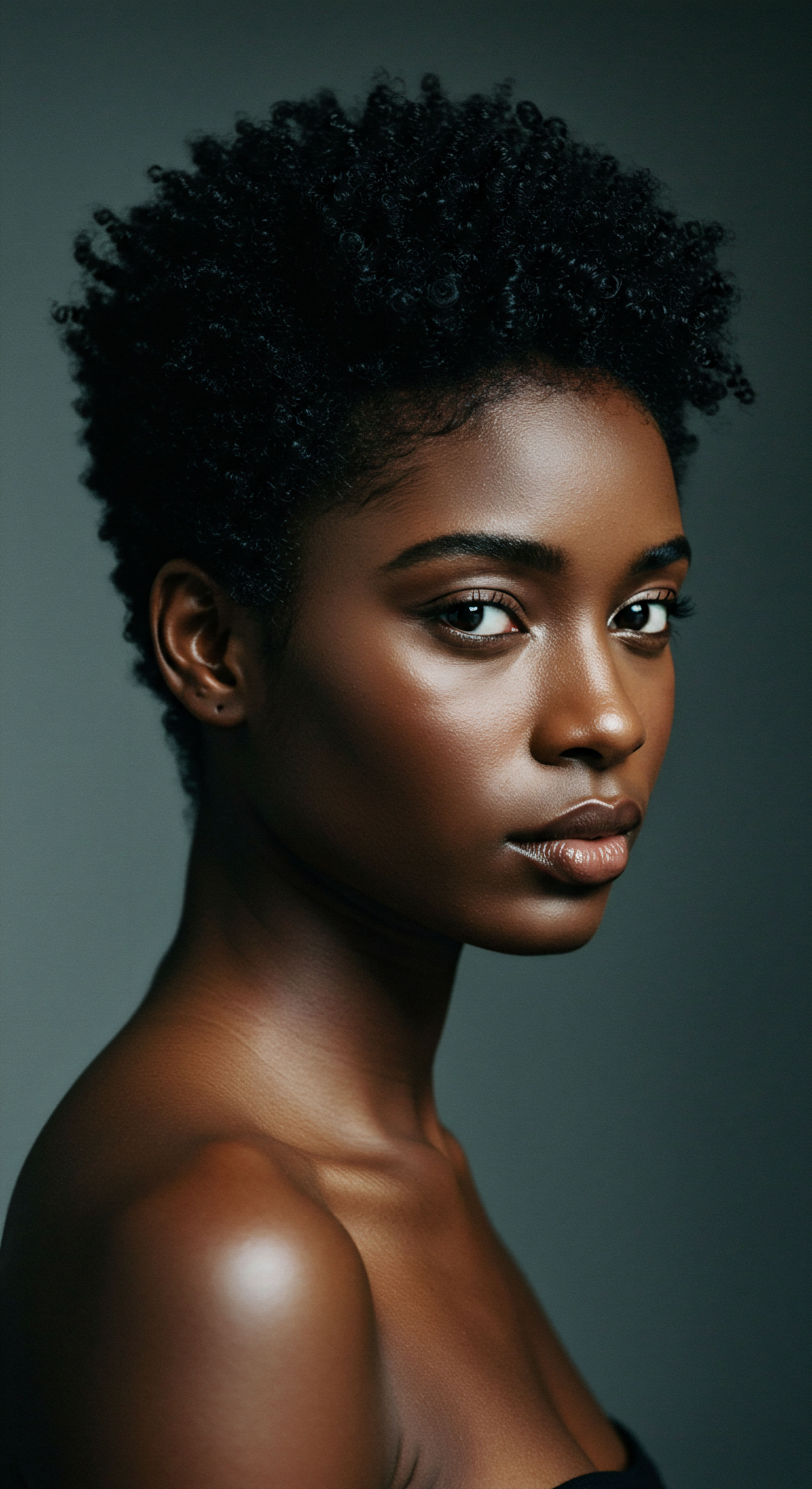
The Circadian Clock and Hair Follicle Activity
The hair follicle itself possesses its own circadian clock, a remarkable testament to its biological sophistication. This intrinsic rhythm dictates the timing of cellular division and metabolic processes within the follicle, influencing the periodic growth of hair. Disruptions to our overarching sleep-wake cycles can desynchronize these follicular clocks, potentially altering the normal progression of hair growth phases. For instance, the transition from the active anagen phase to the resting telogen phase can be accelerated by chronic sleep disturbances, leading to increased hair shedding.
Moreover, the relationship between sleep and hair strength is not solely about deficiency. The quality of sleep also affects the body’s ability to manage Oxidative Stress and Inflammation. During deep sleep, the body undergoes vital repair processes that mitigate oxidative stress and promote cellular regeneration.
Insufficient sleep can trigger an increase in inflammatory markers and reactive oxygen species, which can negatively impact hair follicles and contribute to thinning and loss. This cellular environment, when compromised by poor sleep, creates conditions less conducive to the formation of strong, resilient hair strands.
- Growth Hormone (GH) Deficiency ❉ Insufficient deep sleep reduces GH secretion, hindering hair follicle regeneration.
- Melatonin Dysregulation ❉ Disrupted sleep patterns can alter melatonin levels, impacting its role in hair cycle synchronization and antioxidant protection.
- Cortisol Elevation ❉ Chronic sleep deprivation raises stress hormone (cortisol) levels, which can disrupt hair follicle activity and potentially accelerate hair into a resting phase.
The interplay of these factors paints a compelling picture ❉ sleep duration and quality are not peripheral concerns for hair health, but central pillars. The body’s nightly restorative work, governed by intricate hormonal balances and cellular clocks, directly underpins the strength, vitality, and longevity of our hair. To neglect this fundamental aspect of well-being is to deny our strands the very conditions necessary for their optimal expression.
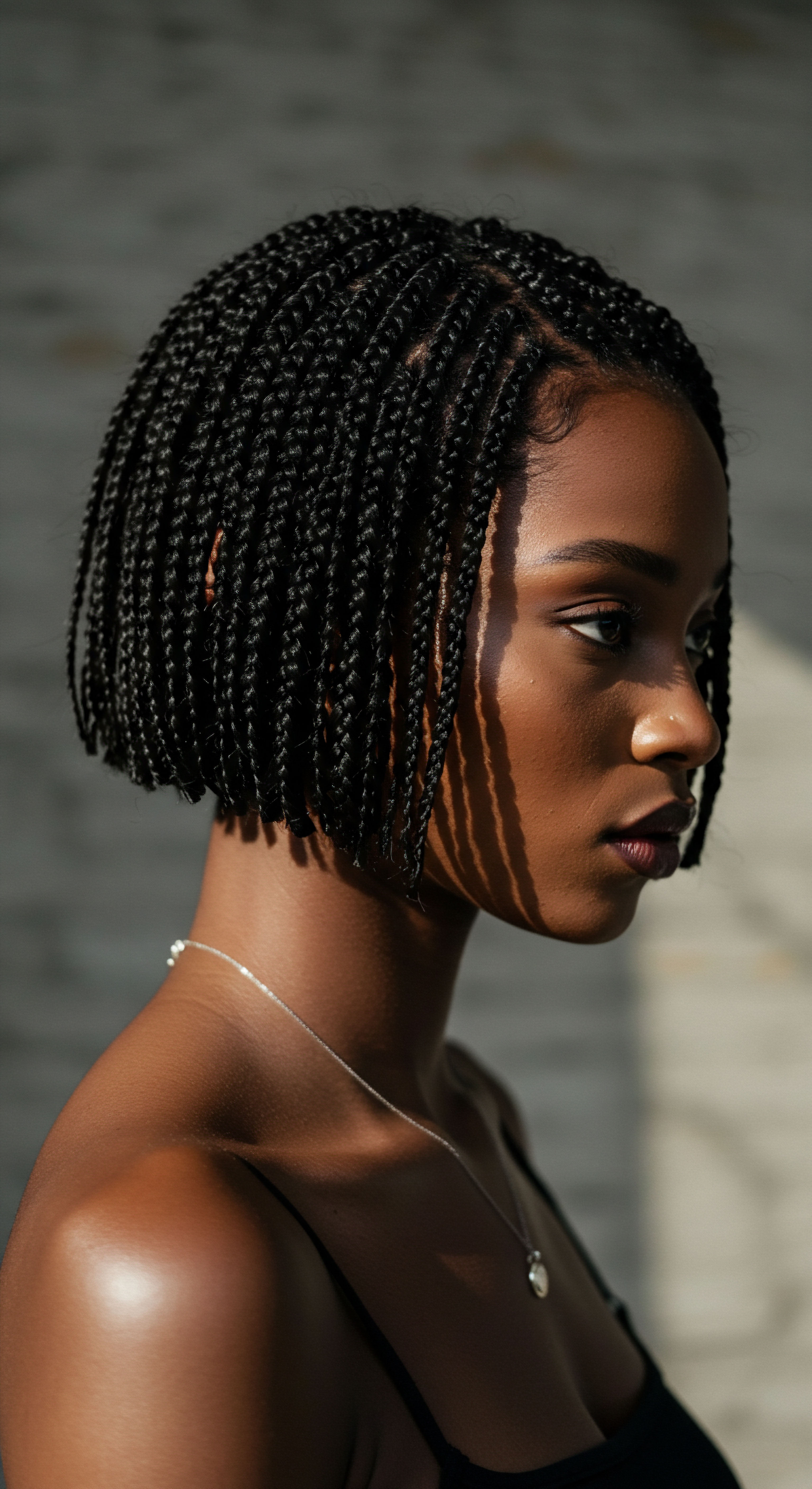
Reflection
As the quiet of night descends, our bodies embark upon a profound work of restoration, a silent symphony that touches every aspect of our being, including the very strands that adorn our heads. The journey into understanding how sleep duration shapes hair strength reveals a deep connection between our internal rhythms and our outward expression. We are reminded that beauty is not merely skin deep, nor is it hair deep; it is rooted in the meticulous balance of our physiology, a balance lovingly tended in the stillness of our rest. Each hour of restorative sleep contributes to a cellular renewal that fortifies our hair from within, a testament to the body’s innate wisdom.
This exploration invites us to reconsider our daily choices, to recognize the profound impact of our nightly surrender. It encourages a gentle yet resolute commitment to honoring our body’s need for repose, knowing that in doing so, we cultivate not only stronger hair but a more vibrant, balanced self. The quiet hours hold a secret language of renewal, speaking directly to the resilience of our strands, guiding them toward their fullest, most luminous expression.
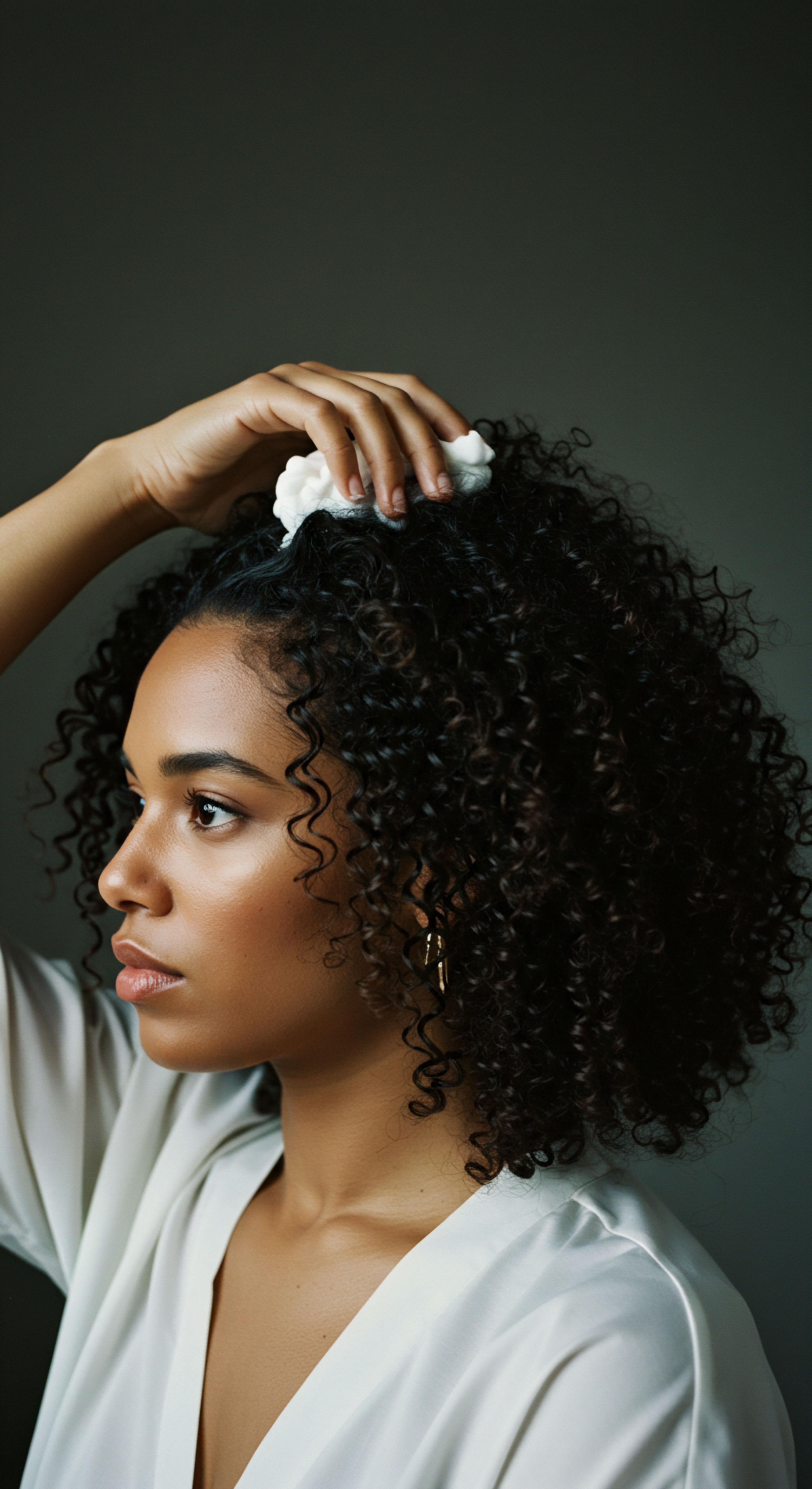
References
- 1. Clinikally. (2024). Impact of Sleep Deprivation on Hair Health.
- 2. Li, Y. Chen, J. Li, Y. et al. (2024). Melatonin’s Role in Hair Follicle Growth and Development ❉ A Cashmere Goat Perspective.
- 3. Han, Y. Choi, J. Shin, J. et al. (2023). Hair Follicles as a Critical Model for Monitoring the Circadian Clock. PubMed Central.
- 4. Philip Kingsley. (2022). The Hair Growth Cycle ❉ 4 Key Stages Explained.
- 5. Leong, J. & Shah, R. (2023). Physiology, Hair. StatPearls. NCBI Bookshelf.
- 6. Oriental Hair Solutions Blog. (2020). Sleep and your hair.
- 7. Hair Doctors. (2025). Can Lack of Sleep Make You Lose Hair? Uncovering the Connection.
- 8. Wellbeing Nutrition. (2023). The Connection Between Sleep and Hair Loss.
- 9. Virtualmed Online. (2024). The Role of Sleep in Hair Health.
- 10. Liu, H. et al. (2022). Morphogenesis, Growth Cycle and Molecular Regulation of Hair Follicles. Frontiers.
- 11. HairFree & HairGrow. (2023). Sleep and Hair Loss. Relationship Explained.
- 12. Treatment Rooms London. (2024). Can A Lack of Sleep Cause Hair Loss?.
- 13. Healthline. (2020). What Are the Four Stages of Hair Growth?.
- 14. MONPURE. (2024). Hair Loss ❉ Is Lack of Sleep Stunting Growth?.
- 15. Harley Street HTC. (2022). Hair Growth Cycle ❉ 4 Stages Explained.
- 16. MONPURE. (2024). Hair Loss ❉ Is Lack of Sleep Stunting Growth?.
- 17. Vinci Hair Clinic. (2021). Why A Good Night’s Sleep Is Great For Your Hair.
- 18. Rindani, T. H. (1966). Sleep deprivation decreases the beard-hair growth in man. PubMed.
- 19. Venus Treatments. (n.d.). How Sleep Can Affect Your Skin and Hair.
- 20. Stush Beauty. (2024). The Benefits of Sleep for Your Skin, Hair, and Nails.
- 21. Li, X. et al. (2023). Melatonin regulates the periodic growth of secondary hair follicles through the nuclear receptor RORα. Frontiers.
- 22. Splash Hair Salon. (n.d.). The Science of Hair Growth ❉ Phases, Hormones, Genetics, and Tips.
- 23. NeuroLaunch.com. (2024). Sleep and Hair Growth ❉ The Surprising Connection.
- 24. Trichology. (2024). Sleep And Hair Growth ❉ Enhance Your Hair Health Through Better Sleep.
- 25. Dr Nagwani. (2025). Sleep and Hair Growth ❉ What’s the Connection?.
- 26. Refinery29. (2021). How To Make Hair Grow – Bad Sleep Stunt Hair Growth?.
- 27. Revela. (2024). Melatonin for Hair Loss & Growth, Here’s Everything You Need to Know.
- 28. Healthline. (2024). Does Melatonin Cause Hair Loss? What Research Shows.
- 29. Higgins, E. et al. (2023). Melatonin and the Human Hair Follicle. PubMed.
- 30. Rindani, T. H. (1966). Sleep deprivation decreases the beard-hair growth in man.
- 31. Brzezińska-Wcisło, L. et al. (2020). Hormonal Effects on Hair Follicles. PubMed Central.
- 32. Centre Clauderer. (n.d.). Hair and sleep ❉ the importance of the night for hair health.
- 33. Wong, S. & Sivamani, R. (2017). How Does the Circadian Rhythm Affect Hair Growth?. LearnSkin.
- 34. DiStefano Hair Restoration Center. (2025). Does Sleep Affect Hair Health?.
- 35. Typology. (2024). The consequences of a lack of sleep on your hair.
- 36. Zantman Clinic. (n.d.). The details of the hair growth cycle.
- 37. DermiMatch Hair Clinic. (2024). Lack of Sleep and Hair Loss ❉ Exploring the Evidence.
- 38. FuseHair. (2024). What Triggers The Anagen Phase?.
- 39. Harley Street Hair Clinic. (n.d.). Emotional stress and hair loss.